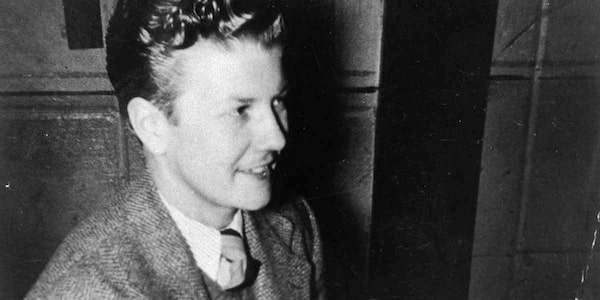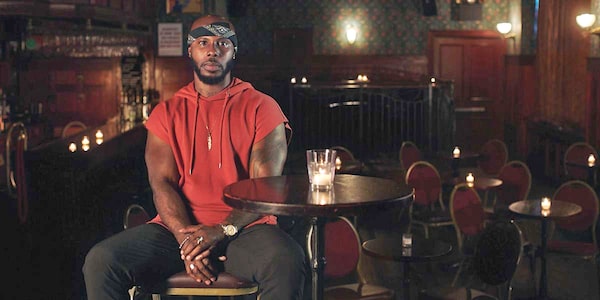
No Ordinary Man explores the legacy of jazz musician Billy Tipton.Courtesy of TIFF
Plan your screen time with the weekly What to Watch newsletter. Sign up today.
After the trans-masculine jazz pianist Billy Tipton died in 1989, his long-hidden sexual anatomy was revealed. The tabloid press sensationalized his story: Who was this person who had “passed” as a man? Who never disclosed his trans status to anyone, not even to the women he loved and his adopted children?
To the creative team behind the new Canadian Tipton documentary No Ordinary Man, premiering at the Toronto International Film Festival on Thursday, the question comes with an answer that isn’t surprising at all. To them, Tipton was who he said he was: a musician, a father, a husband.
“It’s much simpler if you just believe people when they tell you who they are,” says Aisling Chin-Yee, the co-director of No Ordinary Man. “Billy Tipton was, indisputably, a man. There is no speculation for me.”
TIFF 2020: The Globe's guide to everything you need to know about this year's festival
No Ordinary Man tells Tipton’s story unconventionally. Yes, there are talking heads to put his life in context. Yes, Tipton’s son – William Tipton Jr. – is interviewed. But then there are the trans actors who “audition” for the role of Tipton.
Now, the actors weren’t actually trying out for a part. Rather, the audition process was an exercise set up by the filmmakers. “The actors understood they were taking part in a documentary,” explains the Montreal-based Aisling, whose Heather Graham-starring first feature The Rest of Us premiered at TIFF a year ago. “It was a way for us to tell Tipton’s story through multiple points of views and multiple actors’ interpretations.”
In that sense, the method recalls the format of Todd Haynes’s Bob Dylan biopic I’m Not There, in which multiple actors depicted different facets of Dylan’s public personas. Dylan is a mystery – he’s not there. Tipton? He was hiding in plain sight.
There is no archival footage of the tenor-voiced bandleader who played the cabarets and legion halls of mid-century small-town America. He kept no diaries. So, the actors recite words Tipton might have said and portray him, but, more importantly, they seek to understand him. In doing so, the viewer gains comprehension of not only Tipton but trans culture in general.
“We built in a conversational dynamic,” says co-director Chase Joynt, a transgender moving-image artist and writer. “The actors knew they were participating in a project about transgender history, and they knew they were walking into an environment where they’d be able to talk out loud about it.”

The unconventional film shows actors 'auditioning' for the role of Tipton.Courtesy of TIFF
Of course, the things many trans people can talk about today are things Tipton didn’t feel comfortable speaking about privately, let alone out loud. With some exceptions, to be a jazz musician in the 1930s was to be a man. So, the Oklahoma City native bound his breasts and kept his mouth shut.
He toured in various groups as a pianist or a saxophonist. At some point, he obtained a social security card under his assumed name. In 1946, Tipton met 18-year-old Betty Cox. Though never legally married, they lived together as man and wife for some seven years. Tipton kept his secret. In those days, Cox later told the New York Times, “you didn’t leave the lights on when you had sex.”
By 1951, he formed the Billy Tipton Trio, singing such songs as All of Me and Begin the Beguine. His hair was slick and so was his smart-alecky routine. Asked what business he was in, his reply was, "Monkey business.”
Was he joking around? In her controversial 1998 book Suits Me: The Double Life of Billy Tipton, author Diane Wood Middlebrook referred to her subject as a “she” and characterized Tipton’s stealth life as a performance. “She was the actor, he was the role,” Middlebrook wrote.
While acknowledging the considerable research done by Middlebrook, the creators of No Ordinary Man take exception to the portrayal of Tipton’s life as being performative and careerist. “He was a performer, yes, but his gender was male and he was a bandleader who was a man,” says Amos Mac, the film’s co-screenwriter and founder of trans-male quarterly Original Plumbing.
Tipton’s life has instigated numerous artistic endeavours, including Eduardo Machado’s Stevie Wants to Play the Blues. The 1990 play – “part soap opera and part jazz concert,” according to a review in the Los Angeles Times – was loosely inspired by the musician’s life. Nellie McKay’s cabaret musical A Girl Named Bill told Tipton’s highly unique tale with melodies and high spirit.
There’s no jazz to No Ordinary Man. The film seeks to understand Tipton in 2020 terms. “The question of this project is how can we interpret historical subjects, knowing what we know now about gender and sexuality?” says Joynt. “And how can trans people in the contemporary moment find their histories and engage their communities in ways that make sense for them?”
No Ordinary Man premieres Sept. 10, 8 p.m., at the TIFF Bell Lightbox. Additional screenings include Sept. 11, 6 p.m., Bell Digital Cinema, and Sept. 14, 9 p.m., West Island Open Air Cinema at Ontario Place (tiff.net)
 Brad Wheeler
Brad Wheeler